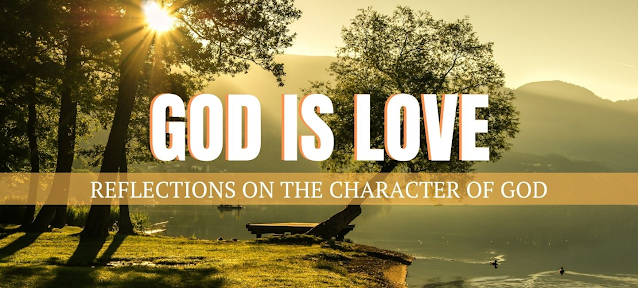Healthy Ways to Read the Bible
and Live Out One's Christian Faith
by R.E. Slater
Over the last several articles I've asked if the bible narratives in the Old and New Testaments are healthy forms of religion and governance. Especially as the traditional church continues to promote divine holiness and sovereign rule.
In answer, it has be stated that God's love is the foremost of all God's divine attributes and character traits. That divine love gives meaning to who God is. That holiness cannot give God's love meaning, but creates in itself a devolution of God's love.
Likewise, as a sovereign dictator whom we call KING, God has been shown in the bible as a moody, heavy-handed and vengeful judge and ruler who "tears down and builds up" whom he will.
That God's Kingdom in Revelation and again in the Old and New Testament prophecies shows it to be a violent kingdom which falls upon the kingdom's of men with haste and destruction.
Hence, a God defined in terms of holiness and as a ruling Monarch wreathed in holiness is a God to be feared... and feared greatly.
But when re-reading the bible, it's testaments, and the covenants which God had established with Abraham and later his progeny Israel we see a different kind of God. One marked by wisdom, love, mercy and forgiveness.
So the question is... Is God all of things? Is God bipolar (extreme swings of mania and depression) or dipolar (a God of deep extremes without ability control God's Self)?
My argument is we have read the bible in unhealthy ways and have placed theological stress upon the Christian faith bespeaking ourselves rather than God's Self.
That is, our pride and perchance for self-glorifying legalism has led us to this idolatrous view of the God of the bible. More so, the biblical narratives themselves have done the same as context to how man's ancient cultures perceived God to be.
That when reading the bible normally for the narratives within it, without giving to it inerrant authoritarianism in our beliefs... shows to us how the church is little different than its legendary predecessors longs years ago.
They saw God as something to be feared. Who presence demanded forms of holiness of a kind. Whose divine rule meant harm and destruction if failing to live up to his covenantal demands.
And yet, should we place God as love into the center or our readings, studies, teachings, and activities, we will quickly discovered that divine holiness means something altogether different we framed and founded upon divine love.
So too our reading of the bible... of how the ancients got God partly right and partly wrong in their festivals, and holy days, their ceremonies and commendorations, their religious lives as versus their day-to-day lives.
In God's love all is praise, right, kind, and good. But without it, God is like the gods of their neighbors in attitude, action, and malignancy.
The bible then tells us about how the people in the bible beheld God. It comes out in the history sections of the bible, the preachings and prophecies, the longings and fears, their songs and praise, and across the breadth of the New Testament as Jesus preached a Sovereign God defined in terms of love rather than holy malevolency.
This God of Love ensnared Jesus, circling his soul around-and-about with its wisdom, longing, persuasion, and capture. Jesus taught a different kind of gospel than did his Temple superiors. It amazed them when they heard and shook their religious institutions to the very core of their prideful foundations.
It was this same God which the disciple John was inspired by and later wrote of in his gospel and epistles. Who, perhaps mockingly, fell in step with the alarmist eschatologies of his day, to write of God's vindication that would fall upon man for not loving one another.
Which in non-Calvinistic, and very Arminian terms, bespoke man's sin and evil more than it did God's retributive justice. A God such as preached by Reformational Calvinism has a lot more to be feared of than a God preached by Reformational Arminianism.
The one is high and might who crashes-down upon the lives of wicked men; the other, an incarnated God as found in Jesus' teaching of God's love and showing this God in exemplary ways of wisdom, kindness, and goodness.
Our sin is our own. God is not sin. Nor does God do works of evil and harm. God is a God of love always. There is no fickleness in this God of earth and creation. When we read the bible let us learn to read it as past imagined beliefs about God even as we have in the church's midst today.
But if reading the bible literally without any imagination or form of wit, then we can make of the bible anything we wish when ascribing our imaginings to our Savior God, including persuasive theologies meant to remove God from us because we our unholy when this is the very reason God is WITH us, loves us, and yearns to redeem us.
Think about it... not all theologies are healthy... nor any not written in God's love.
Peace,
R.E. Slater
December 1, 2023




No comments:
Post a Comment